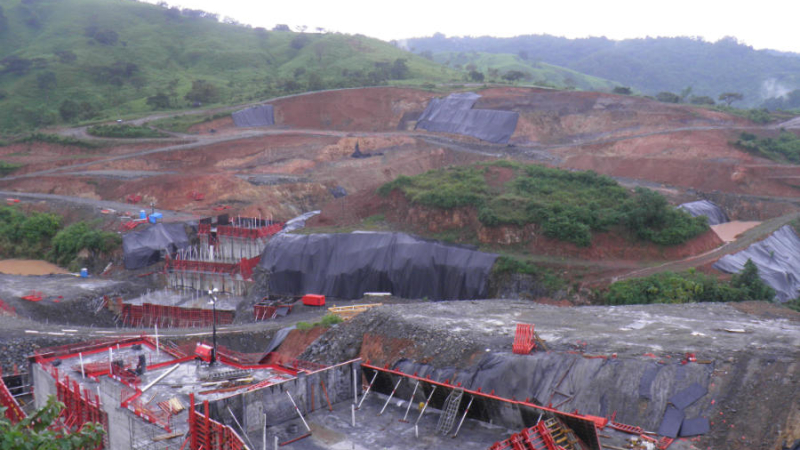Panama Suspends Construction of FMO-funded Barro Blanco hydroelectric dam over environmental and human rights abuses
Kristen Genovese, SOMO: K.Genovese@somo.nl
Anouk Franck, Both ENDS, af@bothends.org

Kristen Genovese, SOMO: K.Genovese@somo.nl
Anouk Franck, Both ENDS, af@bothends.org
Following years of community protest, the Government of Panama temporarily suspended the construction of the Barro Blanco dam. The decision was publicly announced by Panama's Environmental Agency, ANAM, Monday. The indigenous communities whose land would be flooded by the dam had demanded the suspension for years. Although the decision comes when the dam's construction is near to completion, the Movimiento 10 de abril (M-10) is satisfied that steps are finally being taken to address their concerns.
"We have been intimidated and some of our members were even sued in court, but we have always persisted in claiming our right to be consulted on projects in our territory," said Manolo Miranda, representing the M-10. Since the new government took to power in 2014, there has been increased recognition of the communities' grievances, finally leading to this ground-breaking decision.
The Barro Blanco dam, once completed, is expected to flood homes, schools, religious, archaeological, and cultural sites in the Ngöbe-Buglé comarca (indigenous traditional territory). The project will require part of the indigenous Ngöbe communities currently living on the shores of the river to leave their land to which they have strong cultural ties.
ANAM finally decided to suspend construction after finding the project to be out of compliance with its environmental impact assessment (EIA). The breaches include, among other things: the lack of agreement with the affected communities, absence of an approved archaeological management plan, repeated failures to manage sedimentation and erosion, poor management of solid and hazardous waste, and logging without permission.
Role of Dutch and German development banks, FMO and DEG
Two Dutch and German development banks, FMO and DEG respectively, have each invested USD 25 million in this project. They invested in this controversial dam despite the fact that local communities and civil society had raised concerns about the project with them. After critical reports by the UN Development Programme and the UN Special Rapporteur on the Rights of Indigenous Peoples, the current suspension is yet another very strong signal that FMO and DEG largely underestimated the adverse human rights and environmental impacts of the project.
"FMO and DEG never came to the affected area to see whether the project complied with their policies and national laws," explained Manolo Miranda. This news comes at the same time FMO and DEG's Independent Complaints Mechanism (ICM) is investigating a complaint filed by local groups including the M-10, with support from Both ENDS and SOMO. The ICM's compliance report is expected to be published in mid-March.
"FMO and DEG should respond publicly to the report. If the ICM finds that FMO and DEG failed to comply with their own policies, they must identify how to bring the project back into compliance with its policies or divest from the project completely." said Anouk Franck, a senior policy advisor at Both ENDS.
Next steps
"The FMO asserts that when it finances projects, it has leverage to improve their clients' environmental and social performance," said Kris Genovese, a senior researcher at SOMO. "FMO has failed to do so in the course of this project and more so, failed to assess the extent to which the affected community was left out of decision-making."
"We repeat our request to FMO to use its leverage to ensure that the human rights of the Ngöbe are finally respected. Free prior and informed consent is the bottom line. The failure to ensure FPIC in this project has led to unnecessary conflict. I hope FMO will learn that in future projects it needs to deal with human rights from the start," said Anouk Franck.
